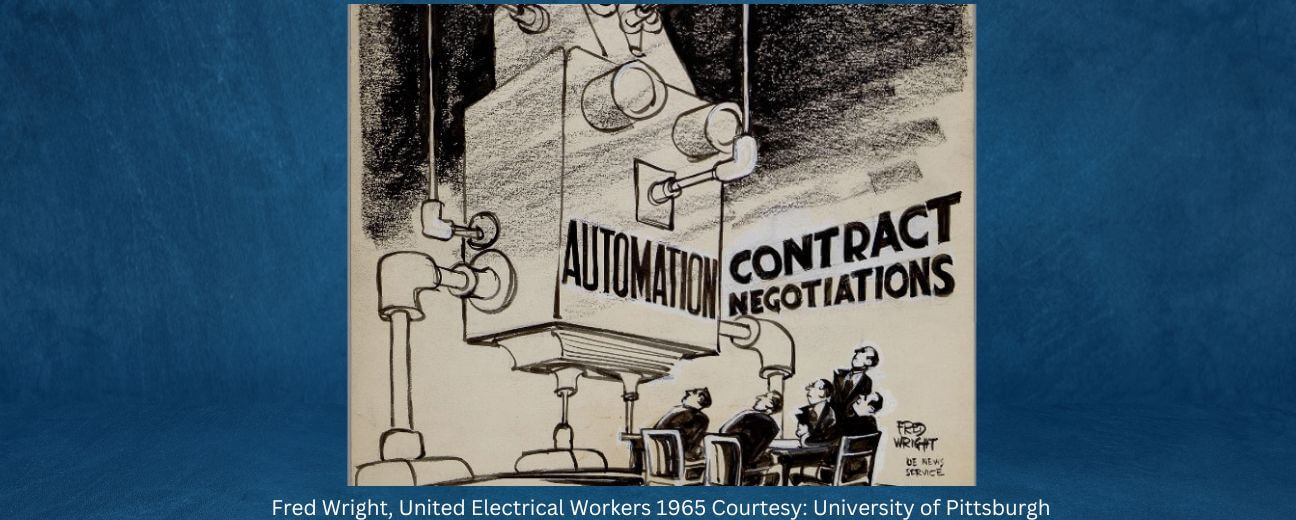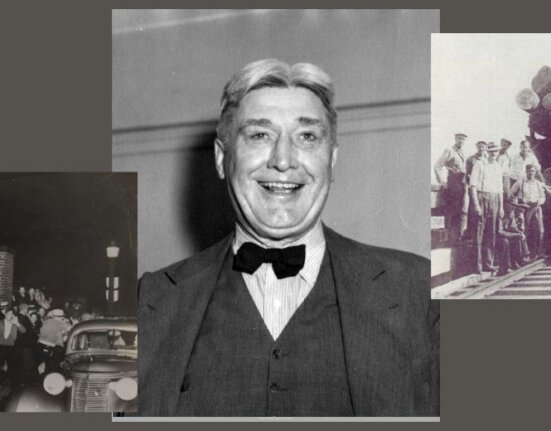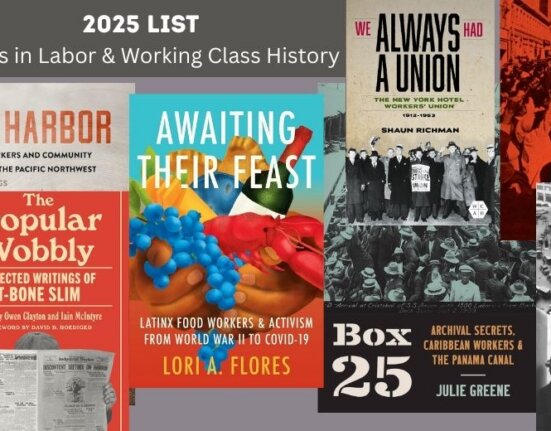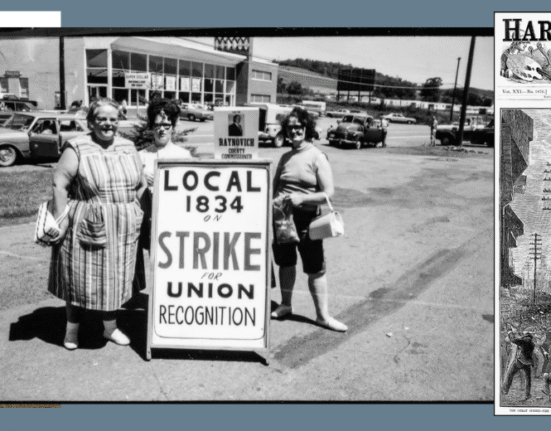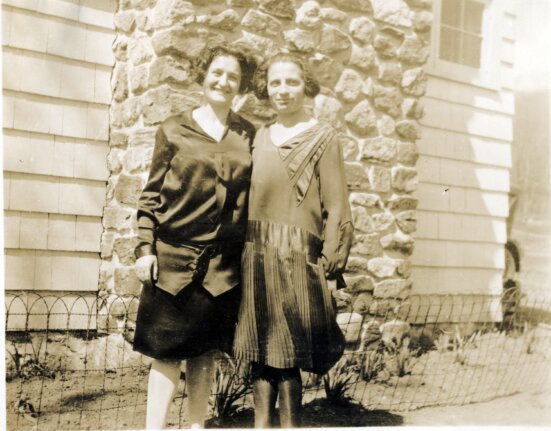In this interview, labor historian Nelson Lichtenstein speaks with Salem Elzway (USC) and Jason Resnikoff (Univ. of Groningen), co-authors of the article “Whence Automation: The History (and Possible Futures) of a Concept” published in Labor’s recent special issue on Labor and Science.
Beginning with the authors’ definition of the “automation discourse,” a phenomenon usually associated with the high tide of American Fordist production during the 1940s and 1950s, in the first part of the interview Nelson asks Salem and Jason to reflect on how employers might have wielded it in other times and other places. (0:00-10:00) How portable is this concept, he asks.
In the second quarter of the discussion (10:00-19:10), Nelson follows up by wondering if the liberal-left has perhaps been especially “seduced” by technological workplace intervention, seeing in it a utopian promise of abundance. Alternatively, he asks, where did resistance to automation come from? (13:30-19:00) Salem, in his response, recounts how the radical leader of the West Coast longshore unions, Harry Bridges, at first resisted containerization in the union’s ports but eventually came to embrace automation on the docks. Considering the flipside, Nelson continues, what is the conservative version of such techno-optimism? (19:00-23:00).
Then, playing devil’s advocate Nelson asks about the relative balance between technological innovation and so-called human resources management (Elton Mayo style) in ratcheting up labor exploitation—isn’t the latter in the driver’s seat in the vast majority of American workplaces today, he asks? In short, in post-Fordist America at least, isn’t Wal-Mart’s labor regime more typical than GM’s? (23:00-29:00) Having written about them both, he may be in a position to know.
Finally, and perhaps inevitably, Nelson turns his attention to AI. How, he asks, did this potential new form of “automation” feature in recent labor struggles in the entertainment industry? (29:00-35:00) As it turns out, Salem consulted for the Writers Guild during the recent strike and contract negotiations, and notes that a “workers’ control” discourse as an antidote to new technology was surprisingly robust in the screenwriters’ new contract.
Along with our blog post by co-editor of the special issue, Seth Rockman, and a forthcoming photo essay by Jonathan Victor Baldoza, the interview offers a glimpse of the rich material to be found in the latest issue of Labor, the first to appear under the editorship of Julia Greene.

